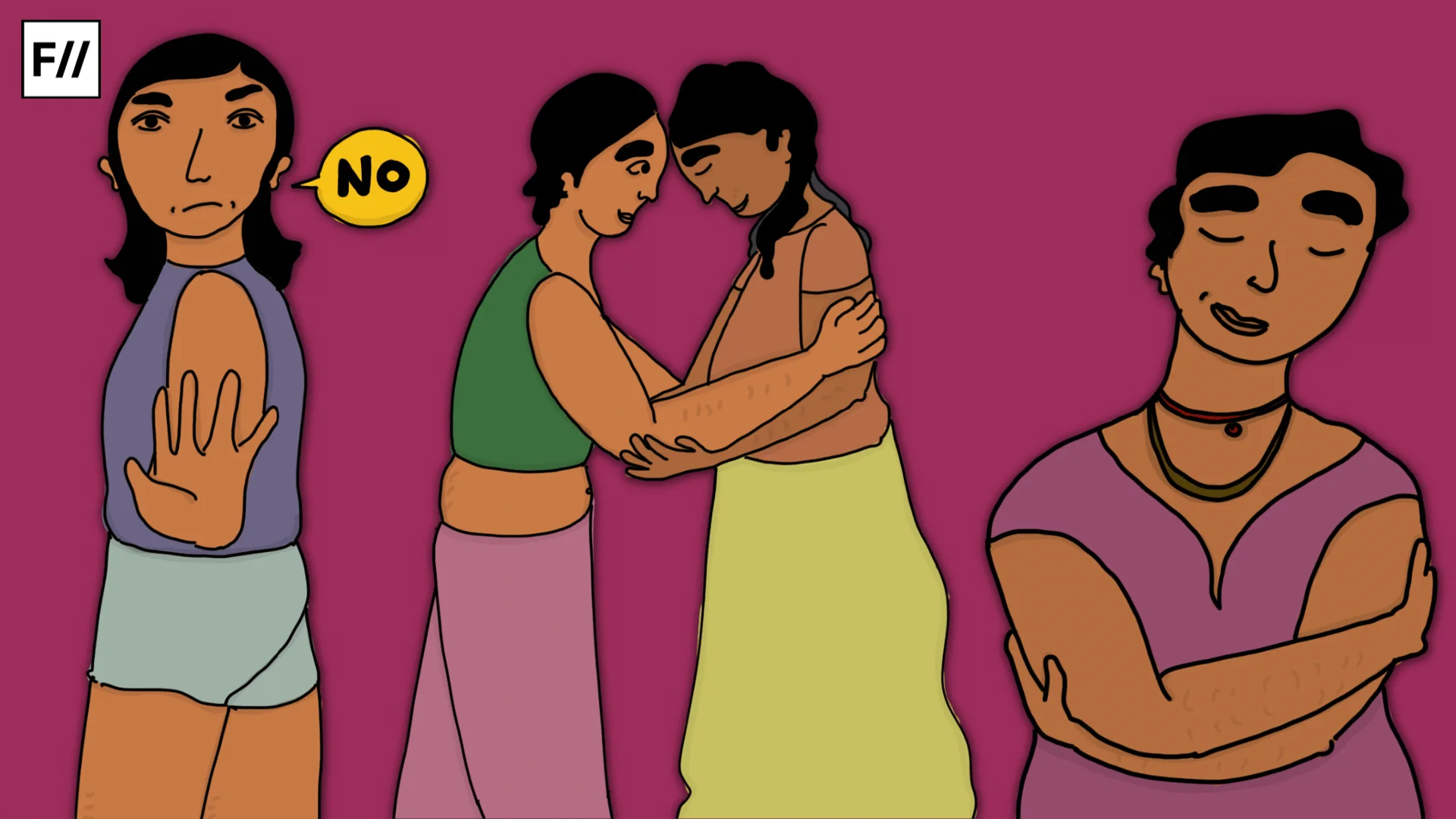“Separate seating for boys and girls!“
“Being made to stand aside for skirts being a tad bit short!“
“Being chided for wearing something sleeveless!“
“Being humiliated for silly crushes and being vocal about being attracted to someone!“
Doesn’t all of this sound extremely familiar? That is because living in India most of us have grown up being policed for the slightest hint of sexual expression. The attitude towards sex and sexuality has always been preventive, and forever hushed and brushed under the carpet.
Let’s try and understand the roadblocks to comprehensive sexuality education in India and try and de-stigmatise sex, sexuality, and sexual expression.
The stigma around ‘sex‘
SEX… Remember coming across this word in dictionaries and giggling? Or all eyes turning towards you if the word was even uttered by mistake in the classroom?
It is a very common practice in our country, to stigmatise anything ‘sex’. Be it sexual health, sexual expression, or sexual education, for the majority of people it is a big no-no. The word ‘sex’ still carries a lot of shame and is looked at just as an act of reproduction or something that is meant for “private discussions”.
Results from a survey of young and unmarried women suggest that as low as 1% of women have received information on sexual and reproductive health and rights (SRHR) from their mothers, doctors, or government campaigns. Furthermore, 53% of these women feel unsure if the sexual health problems they faced were severe enough to visit a gynaecologist. This further points to the fact that in our patriarchal system, any conversation around young women’s sexuality is limited even when it endangers their health.
Also read: Understanding The Basics Of Gender And Sexuality
Impact of Shame and Stigma
The shame and stigma around sexual health that encompasses the lives of young adults from the very beginning results in them de-prioritising their sexual health needs, self-police themselves and refraining from accessing much-needed services and resources. Sexuality, sexual health, and sexual expression are viewed and approached from a place of fear. The flip side of shame and fear is humiliation and trauma. If an individual takes up space and agency to try and express their sexuality, all institutions and authorities label them as “bad” and “unruly” and question their morals.
Women, non-binary people and people with disabilities are taught to hide or be ashamed of their bodies. Being policed for wearing “certain clothes”, being made fun of and humiliated for finding someone attractive, or being snapped for fangirling over celebrities, are all ways in which society tries to control the sexuality of young adults. Feelings of shame and stigma about one’s body can result in low self-esteem and negatively affect one’s sexual interactions
Impact on Sexual Health
The National Family Health Survey (NFHS-4) indicates that only 29 percent of young women between the ages of 15-19 and 40 percent of young women aged 20-24 are allowed to visit health facilities alone. This data points to women having little to no agency in matters related to their bodies and sexual health. The survey highlights a problem of attitude within healthcare settings that often deny women from making decisions regarding their sexual and reproductive health. Furthermore, for people with disabilities, their sexual desires and expression are brushed off and invisibilised. An even greater challenge that arises is that medical providers and frontline health workers are rarely trained to address the needs of people with disabilities.
Need to focus on Comprehensive Sexuality Education
The current Indian demographic is youth-dominated and therefore issues pertaining to young adults need to be given priority. Comprehensive sexuality education is the need of the hour. Silence or stigma when dealing with sexuality can lead to misinformation and perpetuate myths. A lack of comprehensive sexuality education can interfere with a meaningful understanding of sexuality, consent, and violence. Deteriorating sexual health is an important healthcare concern and needs to be taken seriously.
Dismantling the stigma around ‘sex’
The taboo attached to sex, sexuality, sexual health, and sexual expression and the fear of social ostracism needs to be addressed. It is because the misinformation and stigma surrounding sex also affect the emotional and mental health of individuals. Society and all stakeholders need to avoid propagating ideas on morality and take a non-judgmental and practical attitude. The focus should be on enabling young people to make informed decisions and create a sex-positive and enabling ecosystem.
Also read: Why Homophobia And Transphobia Is Rampant In Educational Institutions
About the author(s)
Shriya is a former student of literature and a multimedia journalist with an interest in sports and human rights. She can be found watching Shah Rukh Khan movies or listening to Ali Sethi and 90s Bollywood songs. She enjoys a good cup of black coffee multiple times a day and is often compared to 'Casper, the friendly ghost'.




